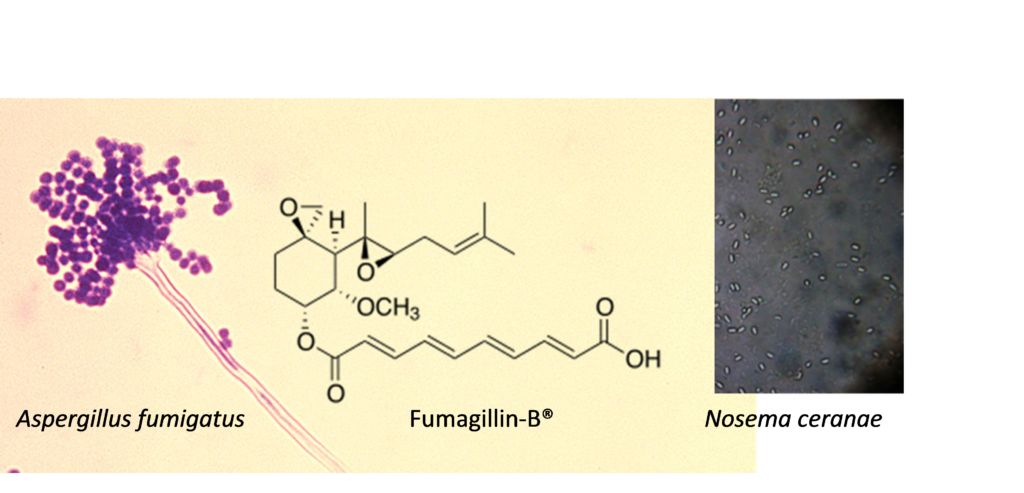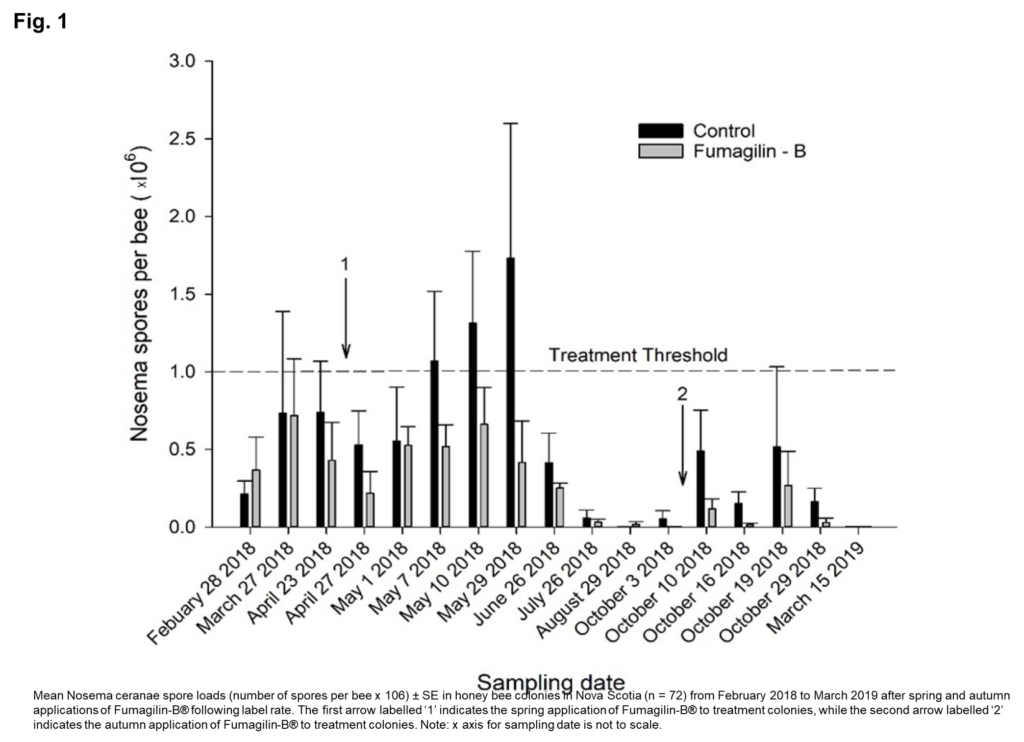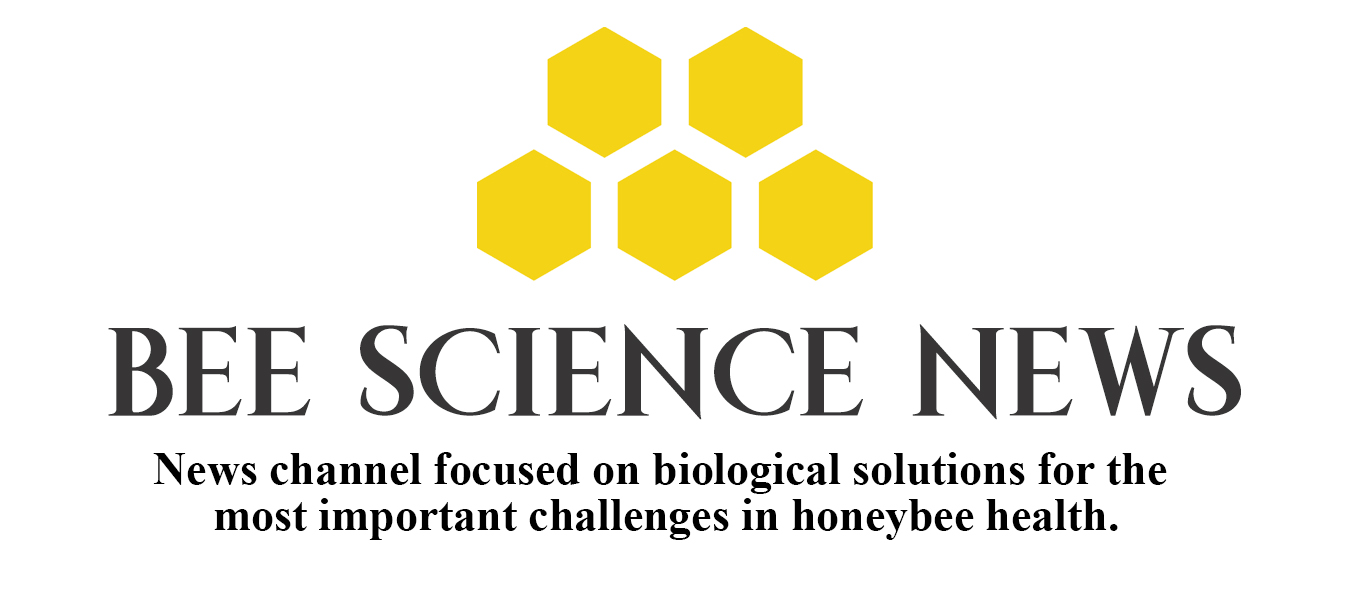Researchers from Nova Scotia, Canada, provide the latest report on Fumagilin-B® suppression of N. ceranae. Results are good for Spring treatment. However, the study does not account for toxicity of fumagillin, and alternative treatment for Nosemosis which do not cause toxicity and honey contamination, such as probiotics.

A research study by McCallum et al. found that Fumagilin-B® suppressed N. ceranae but did not completely eradicate it, supporting other reports.
Results are looking good for Spring treatment. The effect of single Spring Fumagilin-B® treatment on N. ceranae spore counts was significant. Colonies treated with Fumagilin-B® in April maintained Nosema spore loads below 0.5 million spores per bee in May, while control (untreated) colonies had a sharp increase in Nosema spore levels as May progressed, reaching a level of 1.7 million spores per bee in control colonies by the end of the month (Fig. 1).

In Canada, where the study was conducted, 20% of beekeepers treat with Fumagilin-B® in the spring compared to 30% in the autumn (Canadian National Bee Health Survey, 2017). McCallum et al. results demonstrate that beekeepers should consider a spring treatment to maximize spring build-up, possibly instead of Fall treatment.
However, the study does not account for toxicity of fumagillin. Beekeepers must use caution, because using Fumagillin-B® has risks for the honeybee colony. Fumagillin inhibition of methionine aminopeptidase type 2 (MetAP2) enzyme, essential for cell viability, can affect activities necessary for the well-functioning of proteins related to cell viability and growth.
Furthermore, fumagillin inhibits bacterial of MetAP2 enzymes, and changes gut microbiome.
Considering the decreased levels of lactic acid bacteria in honeybees during overwintering period, Fumagillin-B® treatment in the Fall can be especially disrupting to honeybee microbiome.
There are alternative strategies to prevent or manage Nosemosis, which do not cause toxicity and honey contamination. These alternatives include probiotic supplementation. In 2019, for the first time honeybee probiotics became registered in Canada as Veterinary Health Products. Using probiotics in Spring and Fall is safe for the bees and for the beekeeper.
